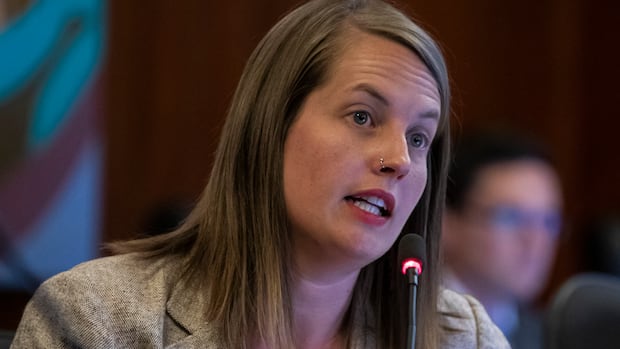B.C. Housing vacancies raise concern for Fort St. John, B.C., councillor after release of FOI docs
Province's housing agency says temporary vacancies common due to turnover, maintenance

A Fort St. John city councillor is raising concern about the number of B.C. Housing units sitting empty as demand for housing grows across the community.
He's also frustrated the city had to file a freedom of information (FOI) request to get an answer about vacancy rates from the housing agency.
Documents the city obtained last month show 24 out of 164 homes managed by B.C. Housing were vacant as of June 30. That amounts to a 15 per cent vacancy rate, three times higher than that of private rentals in the city.
Coun. Trevor Bolin says the information only came after six months of unanswered questions from the city's housing and emergency shelter committee, a group formed last year to address homelessness and housing issues in the city of 24,000 people.
"The biggest shocker was the fact we had to do an FOI… the second surprise was finding out they have a 15 per cent vacancy," said Bolin, who raised the issue during a July 28 council meeting, in an interview.

"The committee just got tired of asking, we got tired of waiting," he said. "FOI's are there to ensure that accountability and transparency are upheld."
When asked about the vacancies, B.C. Housing told CBC News they're common but usually temporary and are due to turnover, cleaning or maintenance.
Fort St. John is the largest city in northeastern B.C., and a key service hub for the province's oil and gas industry. The city's population has grown 27 per cent over the past 15 years, and B.C. Stats projects at least another six per cent growth over the next decade.
That's driving demand for housing, especially rentals.
Assessment finds growing waitlists
Nearly half of households in Fort St. John are renters, according to the city's 2024 housing needs assessment, which found long wait lists for seniors housing, co-ops, and homes for people with disabilities and Indigenous residents. One co-operative housing provider had more than 100 people on its wait list. Over 100 seniors were waiting to get into supportive housing.
Since 2015, Fort St. John's rental vacancy rate has typically stayed above the three per cent mark considered healthy, but has declined considerably since peaking at over 30 per cent in 2016 during a downturn in the economy, according to the assessment. Bolin says the local rate now sits around 4.8 per cent.
While the housing assessment says supply isn't yet a crisis, it does note that many renters are facing affordability challenges, especially families needing two- or three-bedroom units. As the city grows, up to 44 per cent of future demand for housing will be for rentals, and up to 15 per cent of new units will need to be at below-market rents, the report says.
"As industry gets busier and the town gets busier, we're going to see more pressure on the housing market," Bolin said. "If we've got 15, 16 [B.C. Housing] units that are back on the market and being lived in, that, in the community the size of Fort St. John, is huge."
Maintenance and repairs
In a statement, B.C. Housing said vacancies are common but often temporary due to turnover and maintenance, and it acknowledged the challenges the city had accessing vacancy data. The agency said it's working to fill vacant units as soon as possible. Eight are currently being filled, while 16 others need repairs and are expected to be ready throughout the fall.
"When partners let us know they have ongoing data needs, we work with them to set up information sharing agreements," a spokesperson said. "B.C. Housing's northern operations team will be reaching out to the City of Fort St. John to explore setting up an information sharing agreement to provide data on a scheduled basis."
While B.C. Housing directly manages 164 units, it says others in Fort St. John are operated by non-profits, which track and report their own vacancy numbers.
Bolin says B.C. Housing vacancies should be benchmarked, and kept no higher than the local average. He also wants to see the agency start to report vacancy numbers quarterly.
The city, province, and B.C. Housing must share data more readily and plan proactively to ensure supply meets demand, so no one falls through the cracks, he said.
"Really, if we don't get a handle of it and get a hold of it, it could continue to get worse," Bolin said.


